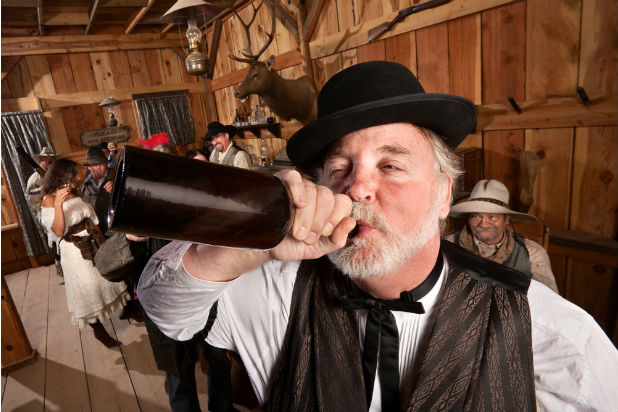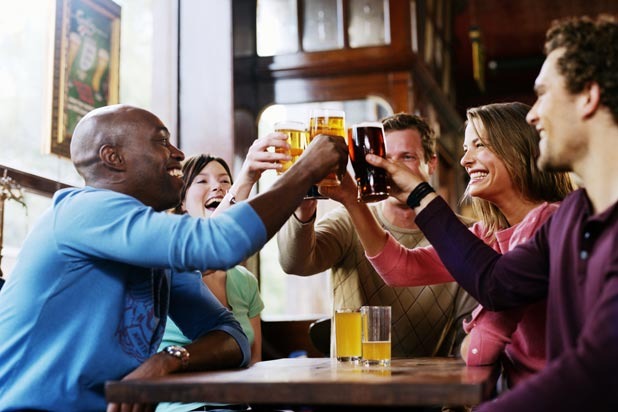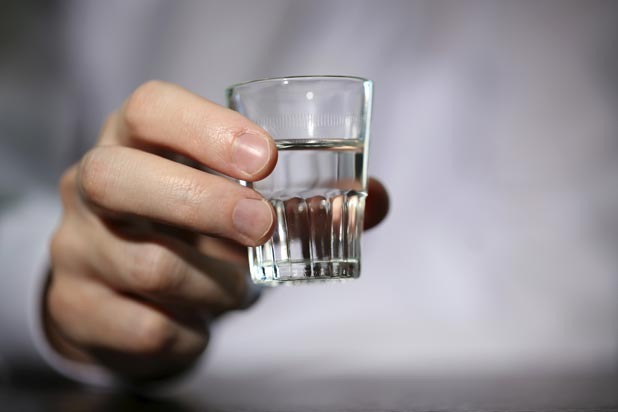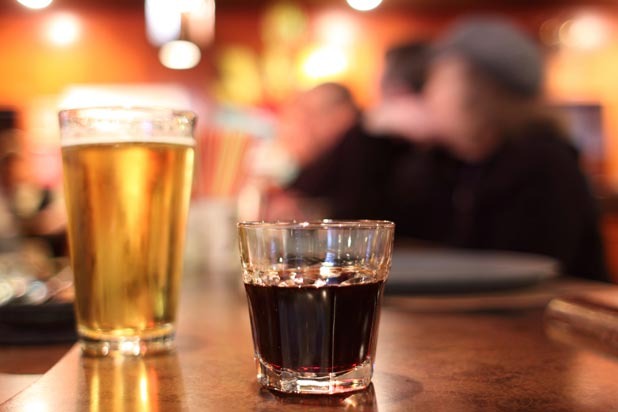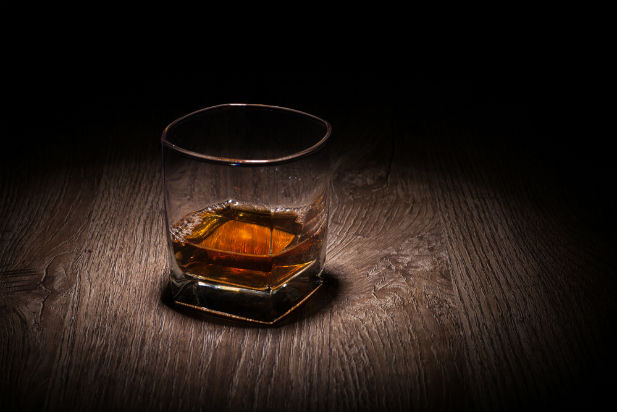8 Questions About Booze You Were Afraid To Ask (Slideshow)
A: Tannins are a kind of flavonoid that occurs naturally in everything from berries to red beans to nuts, although we associate them particularly with red wines. Have you ever taken a sip of red wine and felt as though your mouth had turned into a cartoon of the Mojave desert? Tannins are the culprit. Found on the skin of grapes, as well as in the seeds (known as pips) and stems, tannins can create that sensation of dryness in your mouth, but they also add a mild bitterness to red wines which we generally find pleasant. Tannins are responsible for increasing a wine's complexity; they extend its finish, and can help preserve it by preventing oxidation. Tannins generally get milder with age and can lend a velvety richness to older wines.
Q: Can You Throw Any Alcohol on a Wound to Clean It? Is a Margarita or Beer Just as Good as Rubbing Alcohol?
A: In the movies, when a cowboy gets shot, he always takes a big swig of rough-looking whiskey, steels himself, pours a splash over his bullet wound, and yanks the bullet out himself in a terrifically brave fashion.
There's a lot about this scenario that we don't recommend in real life, but first is the idea that you should pour any alcohol at all on an open wound. However, if you want to disinfect a small scrape or clean your skin super thoroughly, isopropanol or pure ethanol isn't a bad bet (and is a major ingredient in hand sanitizers). When it comes to the alcohol you drink, however, things tend to get a little trickier. One good rule of thumb is that the higher the alcohol content and the purer the alcohol, the cleaner you'll make things — so rubbing alcohol is best, followed by grain alcohol, vodka, then whiskey — you get the idea. If there's a bunch of stuff mixed into the alcohol that isn't really alcohol-related at all (yeast, sugar, sour mix, maraschino cherries, chocolate syrup, etc.) the less clean you'll make things. If you're actually hurt, of course your first step should be going to a doctor — not rummaging about the liquor cabinet. If you want to clean a scrape on your knee with whatever you have around the house, though, you should really use rubbing alcohol — and definitely don't use wine, beer, or, um, a margarita, all of which are decidedly not sterile and could actually make the situation worse.
Q: Why Do Some of My Friends Get Drunk Faster Than I Do?
A: When it comes to the rates at which we metabolize alcohol, there are many, many factors at work. Fat is one of them: a very lean person is likely to get drunk faster than someone who has more fat. Other factors can include your friends' ages relative to yours (older people tend to be more easily affected by alcohol than younger folks), their gender (women have less of an enzyme called dehydrogenase that helps to break down alcohol), what medications they're taking (some are contra-indicated with alcohol and can increase its effects), and how much sleep they've been getting (alcohol can make you even more tired if you're already sleepy).
One factor you can help control? If you want your friends to stay out with you longer — and stay sober longer — make sure they eat well beforehand. How much food is in your system is an important factor.
Q: What Are The Impurities That Get Filtered Out of Vodka?
A: The level and type of distillation has become part of the marketing strategy many vodka companies employ. They remove "impurities" through various filters — Grey Goose, for instance, claims that the water used in their vodka is naturally filtered through Champagne limestone, lending it a certain air of refinement you don't get from just "city tap water."
The truth is that whatever strategies they employ, vodka companies are really just attempting to remove any of the stuff in the vodka that isn't pure ethanol and water. Vodka can be made from any number of plants — grains, potatoes, beets, and grapes are common — but the resulting liquors should taste pretty much identical. When making classic vodka, the goal is to create an alcohol that is absolutely pure: flavorless, colorless, and odorless.
So during the distillation process, after the vodka makers have removed any potentially dangerous substances like methanol and isopropanol, their product is ethanol with a bunch of small molecules dissolved in it, and those small molecules make the ethanol taste like something: potatoes, for instance — or even little bits of burlap sack that the potatoes were transported in. In short, flavors are just small molecules that are often soluble in ethanol, so these "impurities" that get filtered out of vodka are bits of flavor compounds that can come from the vodka's own ingredients.
Q: Why Does It Matter Whether I Drink Liquor Before Beer, or Beer Before Liquor?
A: It doesn't, actually. You may have memorized "Liquor before beer, you're in the clear; beer before liquor, you're never sicker," during your freshman year of college (and the rhyme may have stuck with you better than Psych 100 did), but the truth is that it doesn't matter to your hangover the least bit in what order you consume your drinks. Want to avoid a hangover? Drink less. Not a fun answer, but the best bet — if you want more hangover-avoidance help, however, read on...
Q: What Are Cocktail Bitters, And Why Don’t We Drink Them Straight?
A: Well, of course, you could drink a glass of cocktail bitters — we just don't recommend the practice. Bitters are simply a high-proof alcohol (Angostura, for instance, clocks in at 44.7 percent abv) that have been infused with bark, peels, herbs, spices, flowers, or other botanicals. The result is a complex, layered, and deeply concentrated flavor, one that is beautiful blended with other flavors (especially aged liquors), but which would be overpowering and unpleasant on its own.
Introduce just a couple of drops to a whiskey and throw in some vermouth, however, and you've got yourself a Manhattan. While the bitters in a Manhattan aren't terribly apparent, they create a sensation of seamlessness in the classic cocktail — the bitters add depth and character more than they do one particular flavor. You'd notice if it were missing, but you can't exactly put your finger on what they are. In short: three drops of bitters are more than the sum of their parts.
Some aperitif liqueurs like Campari are also considered a type of bitters. Of course, you can and should drink these straight (or mixed up into a Negroni). But these days, when we discuss bitters, we usually mean the tiny bottles of tinctures full of either aromatic or citrus bitters — and these are best in the tiniest of doses.
Q: How Do I Avoid Getting a Hangover?
A: Don't drink too much! Alternatively, if you're planning to make a night of it, eat a big dinner first, don't mix a bunch of different kinds of booze, don't consume your drinks too quickly, drink a glass of water for every glass alcohol, avoid sugary drinks, avoid champagne, and down at least one glass of water before you go to bed. Some people swear by the old "piece of bread soaked in a teaspoon of olive oil" trick before you go out. It won't hurt (unless you have a gluten allergy, of course).
Q: What are the Differences Among Whiskey, Scotch, and Bourbon?
A: The shortest answer here is not the simplest: all Bourbons are whiskeys, and all Scotches are whiskies, while whiskeys and whiskies are the same basic idea except for the spelling, really, but not legally. But that doesn't really answer your question, does it?
The distinctions are really all about the law. Just as true Champagne must be made in the Champagne region of France, a Scotch whisky must be made in – you guessed it – Scotland. But you can't just make a whisky in Scotland and call it a Scotch: there are rules about how it's made. Lists and lists and lists of rules. The most important among them: Scotch whiskies must be aged in oak barrels for at least three years, they must be at least 40 percent abv (typically between 40-46 percent), they must be made from malted barley, and they can't contain any substances other than the barley, water, and some caramel coloring.
A Bourbon whiskey, similarly, has to be made in the United States. Beyond that, there are plenty of legal requirements, including: Bourbons need to be aged in new, charred oak barrels; they must be at least 51 percent corn; and they should be bottled at 40 percent abv. Kentucky bottles almost all of the Bourbon in the States, and its rival, "Tennessee Whiskey" is really also a bourbon, but has its own legal standards.
To make things more confusing, the "whiskey" and "whisky" spellings aren't consistent from one side of the pond to the other: Canada's answer to Bourbon is spelled "Canadian whisky," while Ireland's blends are called "Irish whiskeys." Even pluralized forms have their differences too. And no, don't try to find a rhyme or reason there. It may just drive you to drink.

